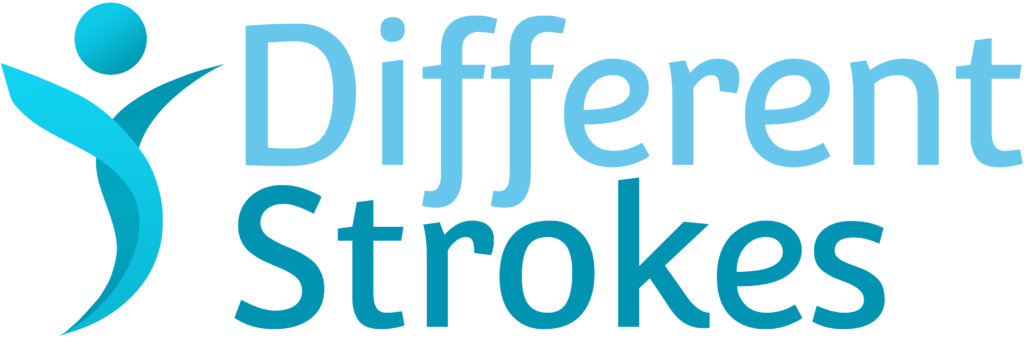Social Impact Report
We use feedback from our annual survey of beneficiaries, case studies and social return on investment calculations to ensure that we are offering services that truly make a difference.
The heart of what we do
To ensure that stroke survivors and their families continue to be at the heart of what we do we produce an annual survey that is open to stroke survivors, family members, friends, carers and health professionals. We want to know if the services that we offer are meeting the needs of our community. The insight that this provides helps us ensure that we continue to deliver services that are relevant and from the heart.
Accountability Matters
We cultivate a culture of transparency and want to ensure that anyone who invests in our charity, whether through fundraising, volunteering or partnerships can know that their investment is in safe hands. We combine data and social return on investment methodology to calculate how effectively we are using funds and how our services are impacting on the people that they support.

Cathy’s Story – Ischaemic Stroke at 26
At 26, a stroke wasn’t on my radar, especially not while celebrating life in a beautiful hotel, cocktails in hand. That afternoon, after hours of sunbathing, a splitting headache hit me like a ton of bricks. I brushed it off as a migraine, trying to sleep it away. But as I walked over a bridge to dinner that evening, my legs gave way. Panic seized me as I told my friend, ‘I can’t walk. I’m not joking, I really can’t walk.’

James’s Story – Haemorrhagic Stroke at 27
I would like to see more awareness about young people having strokes, as there seem to still be a strong misconception that only old people can have a stroke. My experience is that a lesson that a stroke can teach you is how resilient you are. If can survive a stroke, you can achieve anything. I came across Different Strokes when searching for stroke charities on the internet. I found Different Strokes useful in my recovery, as it is inspiring to read through other young stroke survivors’ stories and know that there are others in the same boat.

Chris’s Story – Ischaemic Stroke at 39
If you’re a recent survivor, then please be kind to yourself — physically, mentally, and emotionally. Stroke recovery isn’t a straight line ore most. Some days will feel like progress, while others like a step back — and that’s OK. Also, don’t try to tough it out on your own like I did; reach out, speak up, and connect with people ‘who get it’ (you’ll be surprised how many of us are out there) – and how much it helps. Take your time; rest when you need to, move when you can – and remember: it’s not about getting “back to normal” — it’s about creating a new normal – and one that works for you. If you’re been advised medication then please make sure you take you take it — I’m pretty sure that part really matters; stay positive, even in your darkest moments. It might not feel like it, but the light will shine through; but above all, never forget: Movement is life.

Josh’s Story – Ischaemic Stroke at 26
My partner was out of the country and I was alone at home, which made the experience more scary and confusing. I was placed in a general ward at the hospital, after a CT scan showed some damage to my blood vessels in my shoulder. The next day I was eating my dinner on the ward when I realised I was having difficulty swallowing and couldn’t work out why. My mum had just come to visit and so between trying to eat and the conversation I didn’t think much of it, so we were making plans for the weekend. Soon after I came over feverish and with a rash. A stroke doctor was called and I was put in an ambulance to the hospital.

Tom’s Story – First of three strokes at just 9 years old
Recovering from the (first, and two main) strokes that I have had have been without a doubt the biggest challenges of my life. It has taken me years to fully appreciate the enormity of what happened to me when I was 9 and how it has affected my character both positively and negatively. My music has always been a real life line for me; it’s been and will continue to be a way for me to convey the negative things I have been through in a positive way.

Belindah’s Story – Ischaemic Stroke at 36
That day it happened changed everything – and in just a matter of seconds. I kept thinking of my daughter and my mother; I was left with too many unanswered questions. Every day I ask myself ”What ifs”, and I ask myself what I could have done differently to stop this from happening – but the reality is that maybe there was nothing I could have done. I have better days and I have worse days. At times it’s so hard to interact with others, because sometimes I still struggle with my speech; mostly when I try to speak quickly, and It gets frustrating at times when you are not being understood, or when I struggle to find the rights words. But, I have finally accepted it and have learnt to adjust to my new life, although really most times it’s so hard.




